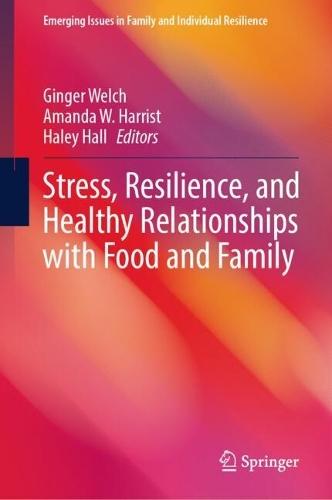Overview
This innovative book applies theories of health-related behavior change and habit formation across the lifespan, with particular emphasis on the contribution of resilience to healthy living. It examines the ways in which adversity and resilience contribute to the formation and maintenance of health-related change across family generations. The book provides a multidisciplinary approach to studying the complexities of individual, parental, and family decision making in building healthy habits, seeking information, and making behavior change in the context of lived risk and resilience. Key areas of coverage include: The contribution of adverse and protective childhood experiences, including historical and generational trauma, to our adult health behaviors. Multidimensional considerations for the development of healthy eating habits and the prevention of obesity early in the lifespan. The development of disordered eating within the context of historically marginalized groups. Stress, Resilience, and Healthy Relationships with Food and Family is an essential resource for researchers, professors, and graduate students as well as clinicians, professionals, and policymakers in the fields of developmental, pediatric, and health psychology, parenting and family studies, infant mental health, nutrition, and all interrelated disciplines.
Full Product Details
Author: Ginger Welch ,
Amanda W. Harrist ,
Haley Hall
Publisher: Springer International Publishing AG
Imprint: Springer International Publishing AG
ISBN: 9783031989360
ISBN 10: 3031989368
Pages: 125
Publication Date: 14 October 2025
Audience:
College/higher education
,
Professional and scholarly
,
Postgraduate, Research & Scholarly
,
Professional & Vocational
Format: Hardback
Publisher's Status: Active
Availability: Not yet available

This item is yet to be released. You can pre-order this item and we will dispatch it to you upon its release.
Author Information
Ginger Welch, Ph.D., is a clinical professor of human development and family science at Oklahoma State University, where her work is focused on community outreach. She is an Associate Director for Community Outreach for the OSU Center for Family Resilience, and a pediatric psychologist on the Pediatric Obesity ECHO program. Her research interests include early childhood mental health and maternal and child health. Dr. Welch is an editor of a previous family resilience volume. Amanda W. Harrist, Ph.D., is an emeritus professor of human development and family science at Oklahoma State University. She was an Associate Director for Community Outreach for the OSU Center for Family Resilience for 13 years and an Administrative Core member, Center for Integrative Research on Childhood Adversity, and NIH COBRE center for 6 years. Her research centers on the family and peer contexts of development of children’s social competence and maladjustment, particularly as exhibited in preschool and the early years of school. Dr. Harrist and colleagues have developed a Family Resilience Model, and she has been series editor or editor for the Volumes 1-7 in the Emerging issues in family and individual resilience book series. Haley Hall, MS, RD/LD, is a registered dietitian specializing in pediatric nutrition, with a focus on children who have experienced adversity. She works in private practice and serves as the registered dietitian for the Pediatric Obesity ECHO program. Currently, Ms. Hall is pursuing a doctoral degree in Human Development and Family Science at Oklahoma State University, where she is a research assistant for the Center for Family Resilience. Her research focuses on biopsychosocial factors that impact pediatric nutrition.



